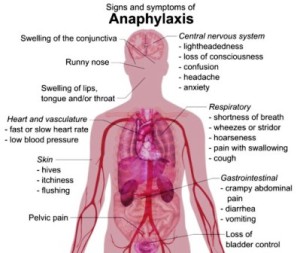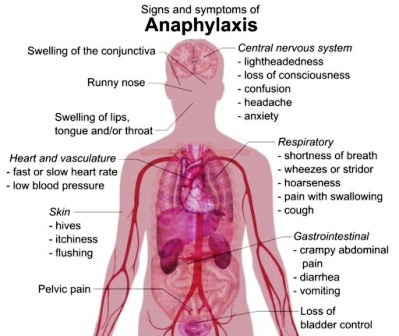 Severe Allergies in Schools
Severe Allergies in Schools
Children with severe allergies in schools have been of growing concern as of late. Sadly, Sabrina’s law (a law requiring every school board in Ontario to manage severe allergies, and have a plan for all children with severe allergies in schools) was not implemented until after the tragic death of the teenage girl in her first year of high school.
Severe allergies to foods such as peanuts, tree nuts, milk, eggs, soy, shellfish, wheat and seeds effect approximately 6 percent of Canadian children, as well as other life threatening allergic reactions to things like insect bites, medications, latex, chemicals, and even exercise. Environmental allergies can also be heightened with these pre-existing conditions so it’s important to reduce common allergies whenever possible as well.
Allergies, both seasonal and more life threatening conditions, occur when the body can’t process something that has entered it. An overabundance of chemical mediators within the body causes hives and itchiness (which in a severe reaction is known as Anaphylaxis). Anaphylaxis can cause extreme swelling of the lips, closure of the throat, and tightened airways to occur within minutes. Death can occur almost immediately, which is why teachers and other school officials are now required to know what to do in advance.
It is also important for parents to teach their children how to be responsible for having their auto injector with them at all times. As sometimes the symptoms do not allow the child to react fast enough, it is imperative that school officials know when to react.
With cooperation from teachers, administrators, volunteers, custodial staff and educating students on allergies and the importance of allergy prevention can alleviate isolation and remove any stigma that may be associated with the child.
Recommendations to school according to Anaphylaxis Canada include the following:
- Having a written policy on how to recognize and deal with Anaphylaxis;
- Training staff on how to use an auto-injector, such as an EpiPen;
- Collect up to date medical information for all students;
- Putting up allergy alert signs around the school;
- Raise allergy awareness to staff and students; and
- Define roles and responsibilities when dealing with severe allergic reactions.
With early planning in the school year and help of information and support from Anaphylaxis Canada, schools can become an even safer place for children suffering from severe allergies.
(Visited 50 times, 1 visits today)






 Severe Allergies in Schools
Severe Allergies in Schools